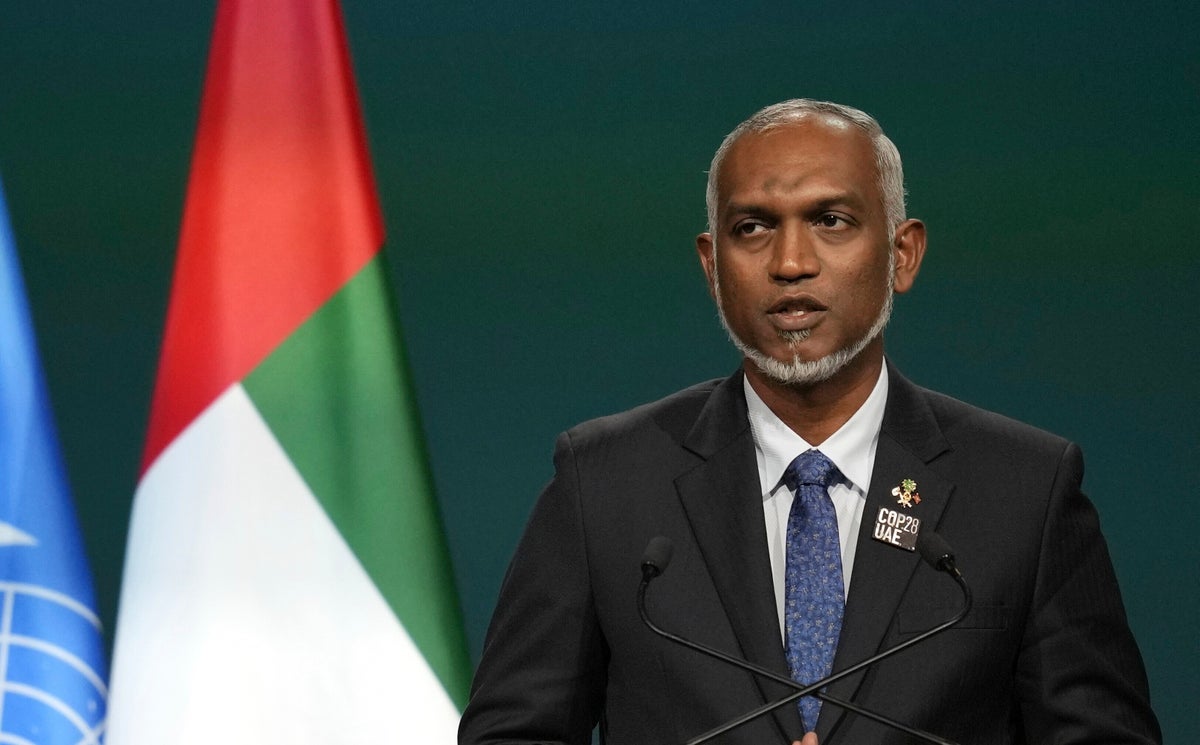
The president of the Maldives said Saturday that his country's small size doesn't give anyone the license to bully it, in a sign of defiance toward India, the archipelago state's giant neighbor.
President Mohamed Muizzu, speaking to the media on his return from India's regional rival China, said the Maldives is not in any country's backyard and that the Indian Ocean does not belong to a single country — a reference to a recent tiff between the Maldives and India.
“We may be small but that doesn't give you the license to bully us,” Muizzu concluded in English, having made his statement in the native Dhivehi language.
The latest dispute started with Indian Prime Minister Narendra Modi posting photos on X, formerly Twitter, showing him strolling and snorkeling in the Indian archipelago of Lakshadweep, which his government believes has an untapped potential for tourism.
However, in the Maldives, some saw it as an attempt to draw visitors away from its sandy white beaches and high-end island resorts popular with celebrities.
“We are a free and independent nation. So this territorial integrity is something China respects firmly,” said Muizzu, signaling the Maldives government's effort to break from India's influence.
Muizzu was elected president last November on an “India Out” platform promising to remove some Indian military personnel stationed in the Maldives. He accused his predecessor of compromising national sovereignty.
Three government deputy ministers posted derogatory remarks against Modi on X and were suspended by Muizzu's government, which said those remarks do not reflect government policy.
However, many Indians took to social media urging a boycott of the island nation.
The incident highlighted the fragile nature of the relationship between India and the Maldives and its susceptibility to a breakdown at a time when Beijing and New Delhi are both vying for influence in the island nation.
A breakdown in relations could affect the Maldives more since many of its citizens travel to India for health care and education while most staples and medicines are imported from that country.
Last year, India sent the most tourists to the Maldives, an 11% share.
However, Muizzu said China sent the largest number of tourists to the Maldives before the COVID-19 pandemic and steps would be taken to double that number.
He also announced plans that, if implemented, will enable the Maldives to break from its dependence on India.
Muizzu said government-sponsored universal health care for Maldivians provided in hospitals in India and Sri Lanka will be expanded to Thailand and the United Arab Emirates.
Most Maldivians now go to hospitals in India for treatment.
“When this is fully established, Maldivians will be served much better from countries with much better quality than the countries we go to now,” said Muizzu.
He also said the Maldives has reached an agreement with Turkey for the import of rice, sugar and wheat flour. Medicines will be imported directly from manufacturers in Europe and the United States, he said.
“We will surely establish our independence, our sovereignty and establish the Maldives of the Maldivians,” he said.







